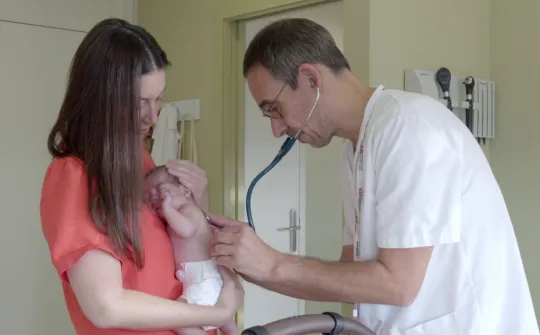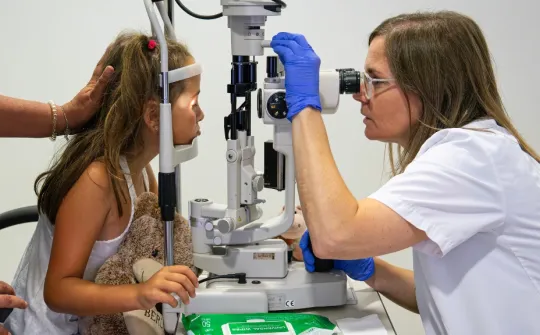
This region plays a key role in decision-making and emotion regulation. A higher volume of grey matter in this region results in less impulsivity.
A research team at the SJD Barcelona Children's Hospital – SJD Research Institute (IRSJD) and the Sant Pau Biomedical Research Institute have led the largest brain imaging study of children between the ages of 9 and 11, linking more time spent breastfeeding with a higher volume of cortex grey matter in the studied age group. The study was published in the scientific journal called Journal of Child Psychology and Psychiatry.
Breastfeeding is thought to have several benefits for childhood health, such as a boosted immune system and a lower risk of chronic diseases. However, there have been few studies that have explored its link with brain development in infancy.
A study led by Christian Stephan-Otto, scientific coordinator of the Pediatric Computational Imaging Center (PeCIC) at the SJD Barcelona Children's Hospital – SJD Research Institute, and Maria Portella, head of the Mental Health Research Group at the Sant Pau Biomedical Research Institute, analysed magnetic resonance images of around 8,000 children between the ages of 9 and 11 years old to establish a link between the length of time a child is breastfed and the volume of grey matter in the brain.
‘We found that time spent breastfeeding was proportionally associated to an increased volume within a certain area of the brain in children aged 9 to 11. This region consisted of the inferior frontal gyrus and the lateral orbitofrontal cortex,’ comments Christian Stephan-Otto. ‘Plus, this increased volume was linked to lower levels of impulsivity’.
‘These findings suggest that breastfeeding can have long-term effects on brain development and personality,’ adds Christian Núñez, first author of the article and researcher at the Sant Pau Biomedical Research Institute. ‘It is important to highlight that these regions of the brain play a crucial role in decision-making and emotion regulation, among other things’.
Link between grey matter and cognitive performance
Grey matter is the tissue in the brain that (mainly) contains neuronal, dendritic and synaptic cell bodies, and that is responsible for processing sensory information, controlling muscle movements and conscious thought. A higher volume of grey matter could be linked to improved cognitive performance and an increased capacity for processing sensory information.
Furthermore, some studies have found that a higher volume of grey matter is linked to better mental health, and a lower risk of developing neuropsychiatric disorders such as depression and anxiety. However, it is important to keep in mind that the relationship between grey matter size and brain function is not fully understood, and continues to be a topic of investigation.
The inferior frontal gyrus and the lateral orbitofrontal cortex are two important regions in the frontal region of the brain, carrying out essential functions during semantic processing, decision-making and emotion regulation. Although previous studies had already shown the clinical and cognitive benefits of breastfeeding, this study has allowed us to observe the effects of breastfeeding on the brain. Additionally, we have seen, for the first time, that the majority of grey matter in this region has a direct impact on impulsivity in children, which suggests that breastfeeding could be a fundamental part of personality development.
‘These results are only the beginning,’ comments Maria Portella, co-coordinator of the study. ‘We hope to continue researching how breastfeeding impacts the brain and how we can use this information to improve pediatric health. This project is the first step towards showing that there is indeed a link, but now we have to gain a better understanding of how this increase in grey matter volume is linked to the cognitive and clinical benefits we know breastfeeding carries.’
The study has been carried out by a research team from the SJD Barcelona Children's Hospital – SJD Research Institute, the Sant Pau Biomedical Research Institute, Hospital Clinic-IDIBAPS, the NéNé Foundation, the Autonomous University of Barcelona, and the Biomedical Research Networking Centers (CIBER) of Mental Health. The project uses data from the Adolescent Brain Cognitive Development (ABCD) dataset, a large-scale, longitudinal study funded by the National Institute of Health in the United States.



